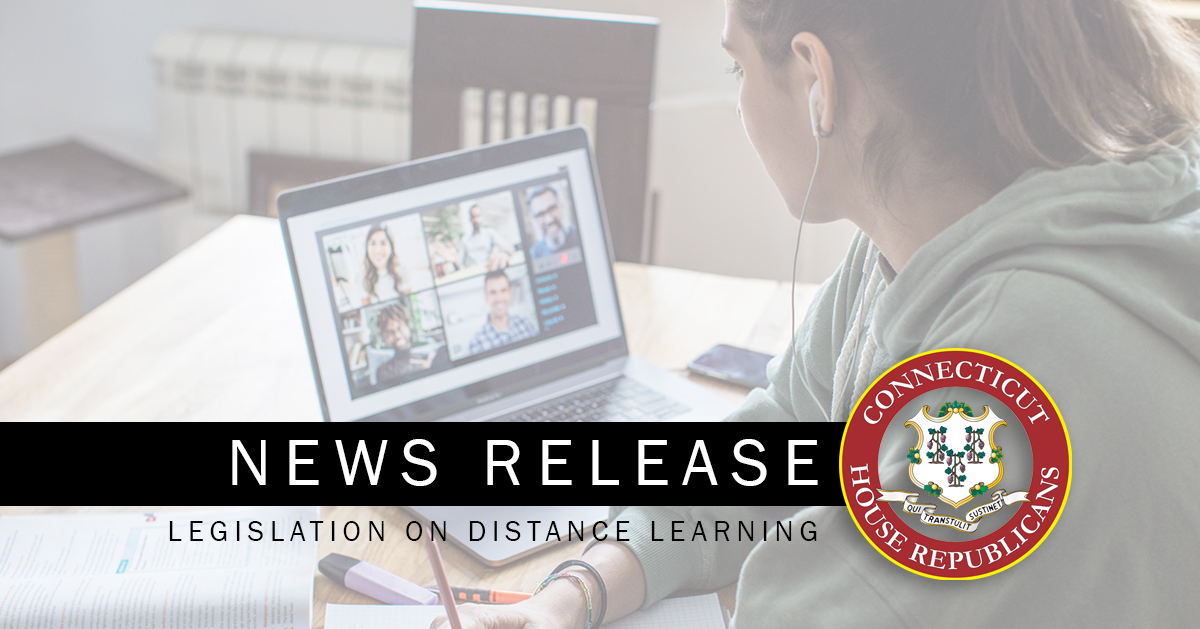
Posted on January 13, 2021



HARTFORD—House Republican Leader Vincent Candelora and state Rep. Kathleen McCarty, ranking House Republican on the Education Committee, said Wednesday they will pursue legislation aimed at establishing clear minimum guidelines for remote learning for Connecticut students.
“While we hope that virtual learning is temporary, the reality is that the state and school districts have invested heavily into this virtual structure, and that, combined with the uncertainty of how long COVID will linger, means distance learning could be here to stay in some form or another,” said Candelora (R-86.) “That means we should do everything we can now to get it right for the future, to set baseline expectations as a means to help students achieve critical educational benchmarks while also preventing the opportunity gap between suburban and urban school districts from growing wider.”
Candelora and McCarty say they have been moved to act not only by statistics highlighting unacceptable levels of absenteeism during the pandemic but also by the frustration shared by parents statewide who fear their children are falling behind.
“If school districts are forced to use hybrid learning in the future, either because of this virus or some other unforeseen situation, it is imperative that they have a clear set of minimum standards from the State Department of Education upon which to develop local plans. This collaboration will offer the needed structure that ensures each and every child has access to the tools needed to succeed,” said McCarty (R-38.). “Establishing minimum standards to align in-person and remote learning, assuring special needs students’ individual needs are being met, and providing the proper overview from the state level to make sure these standards are met will improve learning for all students.”
McCarty and Candelora say they are concerned that the inadequacies of remote learning will erode years of legal and policy efforts aimed at narrowing educational inequities between communities. In Connecticut’s 10 lowest-performing Alliance districts, nearly 61 percent of students have been learning remotely compared to the statewide average of 33 percent. Absenteeism is a serious problem too—a December media report, for example, indicated that 1 in 3 public school children in New Haven had missed 10 percent of school days during the pandemic. Overall, the two Republican legislators say that more consistency is needed to measure student participation and engagement once children are logged into a virtual platform. Logging in and submitting work are the dominant metrics.
Legislation from House Republicans will require:
- Uniform minimum requirements to be set by the State Department of Education for distance learning that would require online classroom participation by students, while also requiring virtual settings to feature the same amount of teacher instruction time as classroom settings;
- Minimum standards for students and educators for classwork as well as assigning grades for completed work;
- State-supported teacher training in remote/distance learning;
- In-person education for special needs students unless the school can demonstrate that their educational requirements can be met through distance learning;
- The State Department of Education to provide periodic review of whether such minimal standards are being met;
- Towns to use the first three snow days as traditional snow days with school off and allow subsequent snow days to be substituted for virtual learning that may be counted towards the school’s 180-day requirement.
Candelora and McCarty say the legislation would not prohibit local school districts from establishing more stringent standards if they chose to do so.
